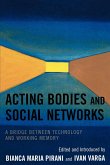This interdisciplinary reader provides a distinctive introduction to the way social, political and economic life is coordinated. It brings together three quite different models of coordination - markets, hierarchies and networks - and places them into a comparative framework, presenting a comprehensive and insightful overview of social coordination. The articles dealing with each model explore the characteristics of that coordinating mechanism, outlining key theoretical issues and drawing on various empirical examples. The final section shows how these models can be compared and contrasted. It also assesses the respective strengths, weaknesses and limitations of each model. Markets, Hierarchies and Networks is a set book on The Open University course D212 Running the Country.
Hinweis: Dieser Artikel kann nur an eine deutsche Lieferadresse ausgeliefert werden.
Hinweis: Dieser Artikel kann nur an eine deutsche Lieferadresse ausgeliefert werden.
`In summary, it can be recorded that this is a substantial book: substantial in a number of respects. First it has much of substance to it - it covers a lot of ground. Second, as most papers in the book are closely argued, it covers that ground in some depth - there are few opportunities for the reader to coast here! It is also substantial in that, whether because of the inherent nature of the subject matter or the way it is exposed, its sparks ideas along the way and raises many more questions than it answers. Finally, it is substantial in the way the editors touch upon issues which are central to epistemology, the sociology of knowledge, and the philosophy of science.' - Systems Practice









